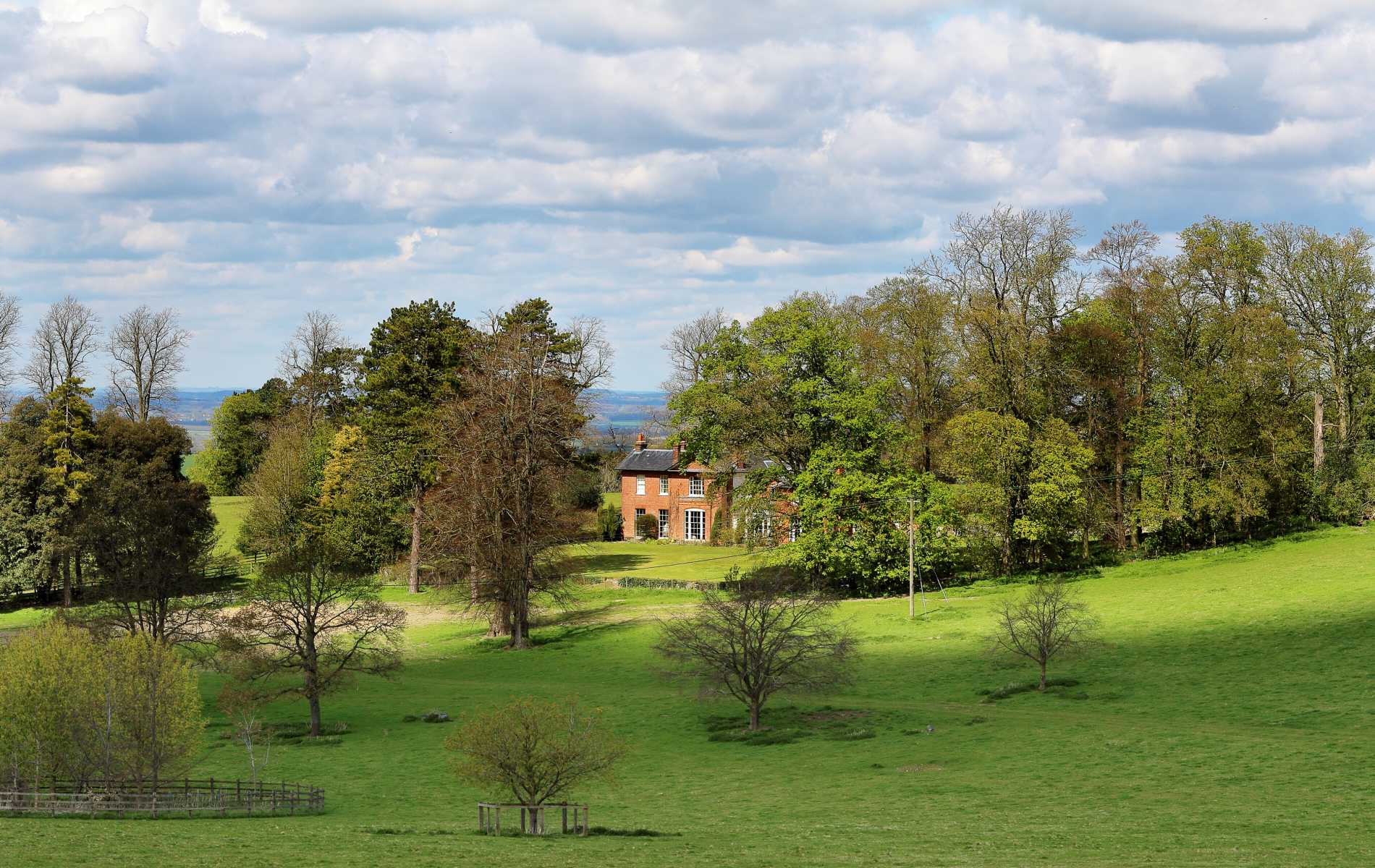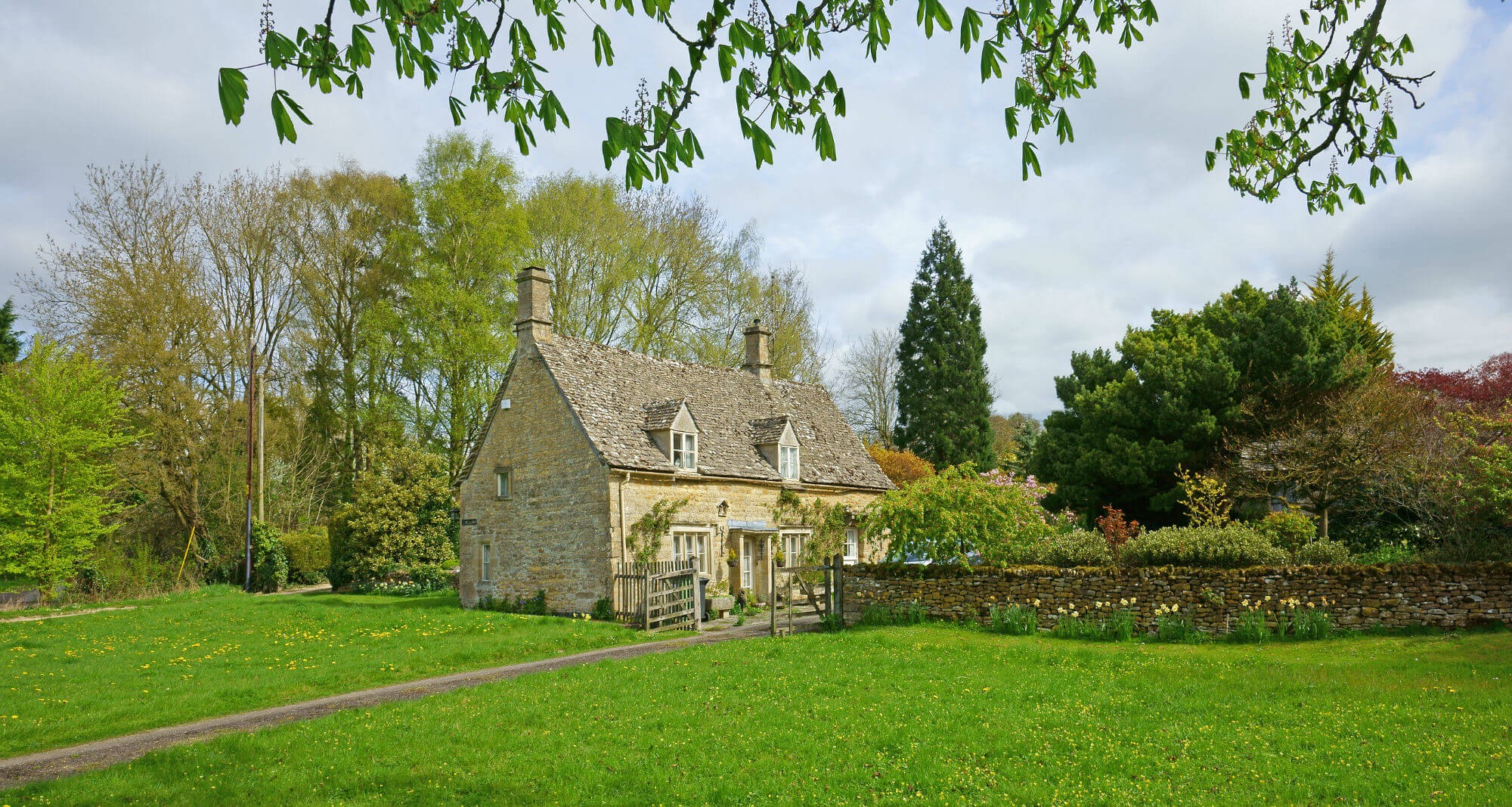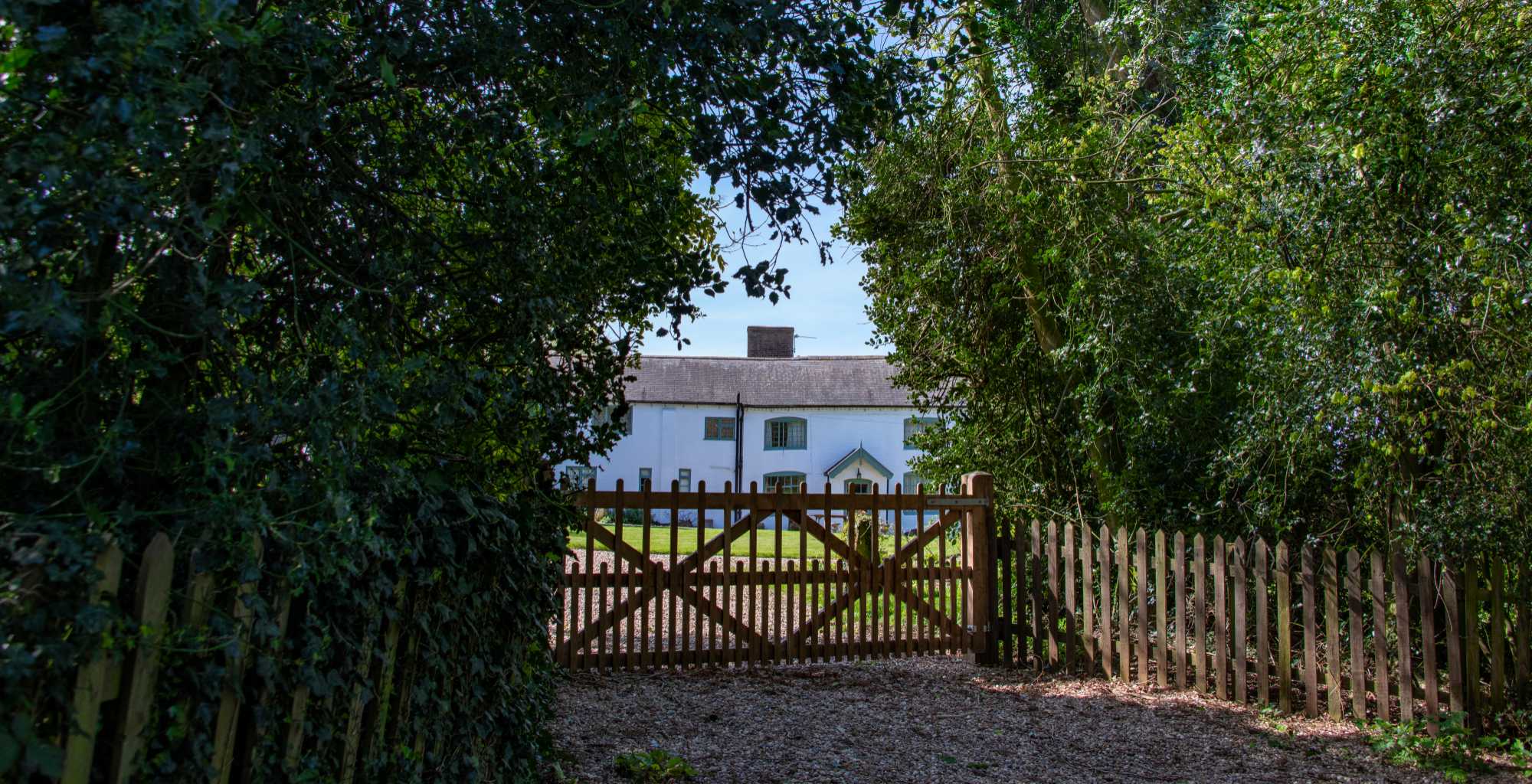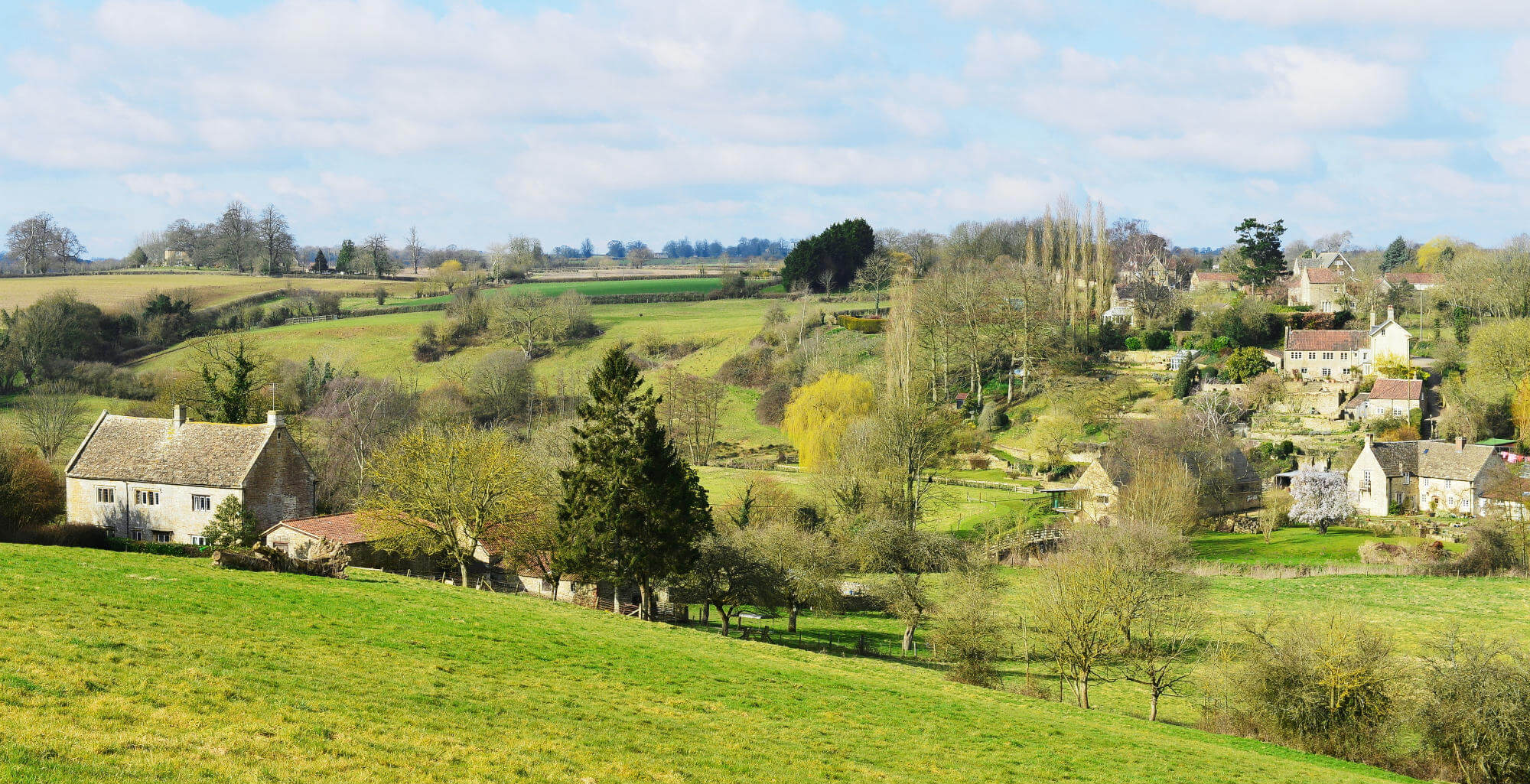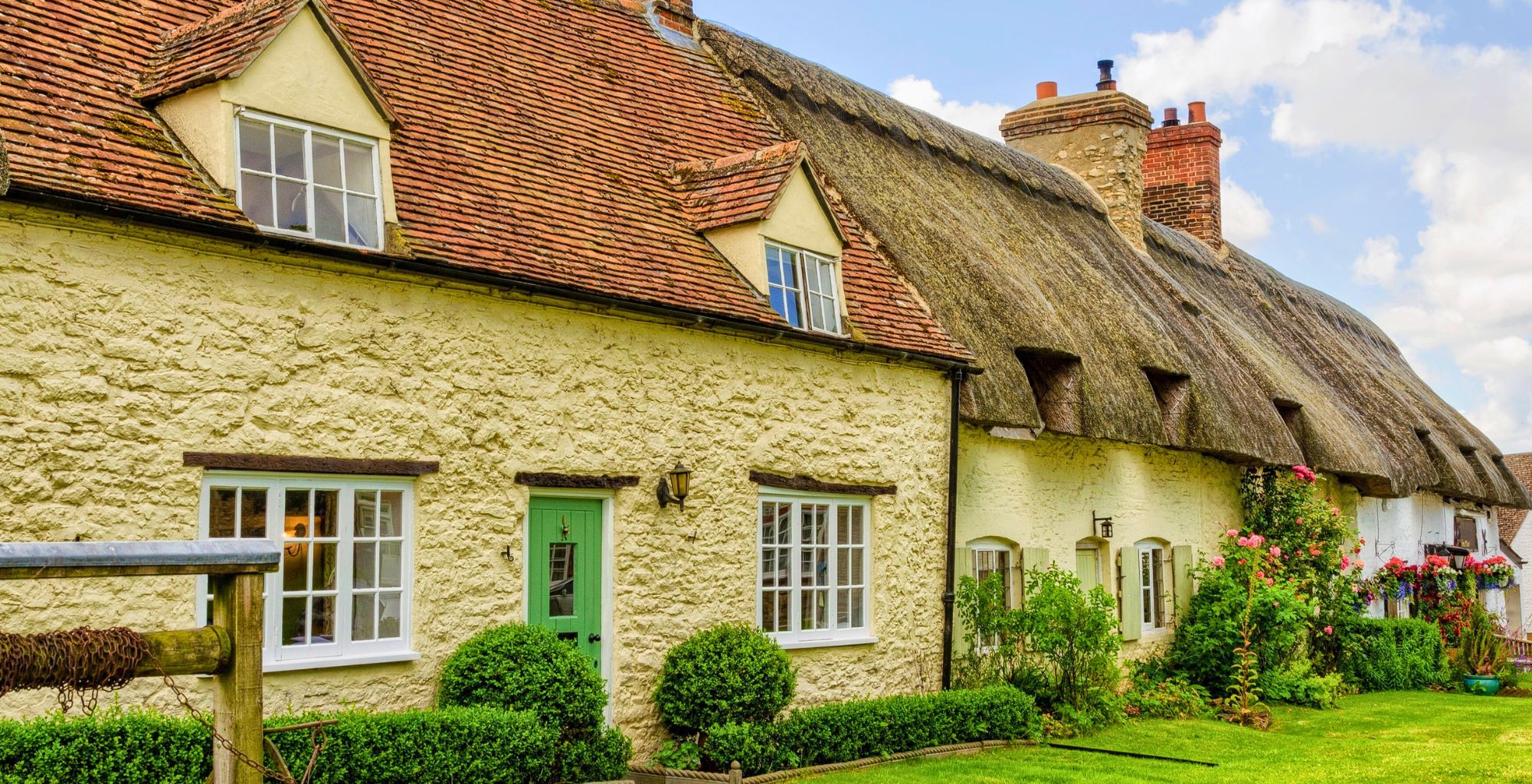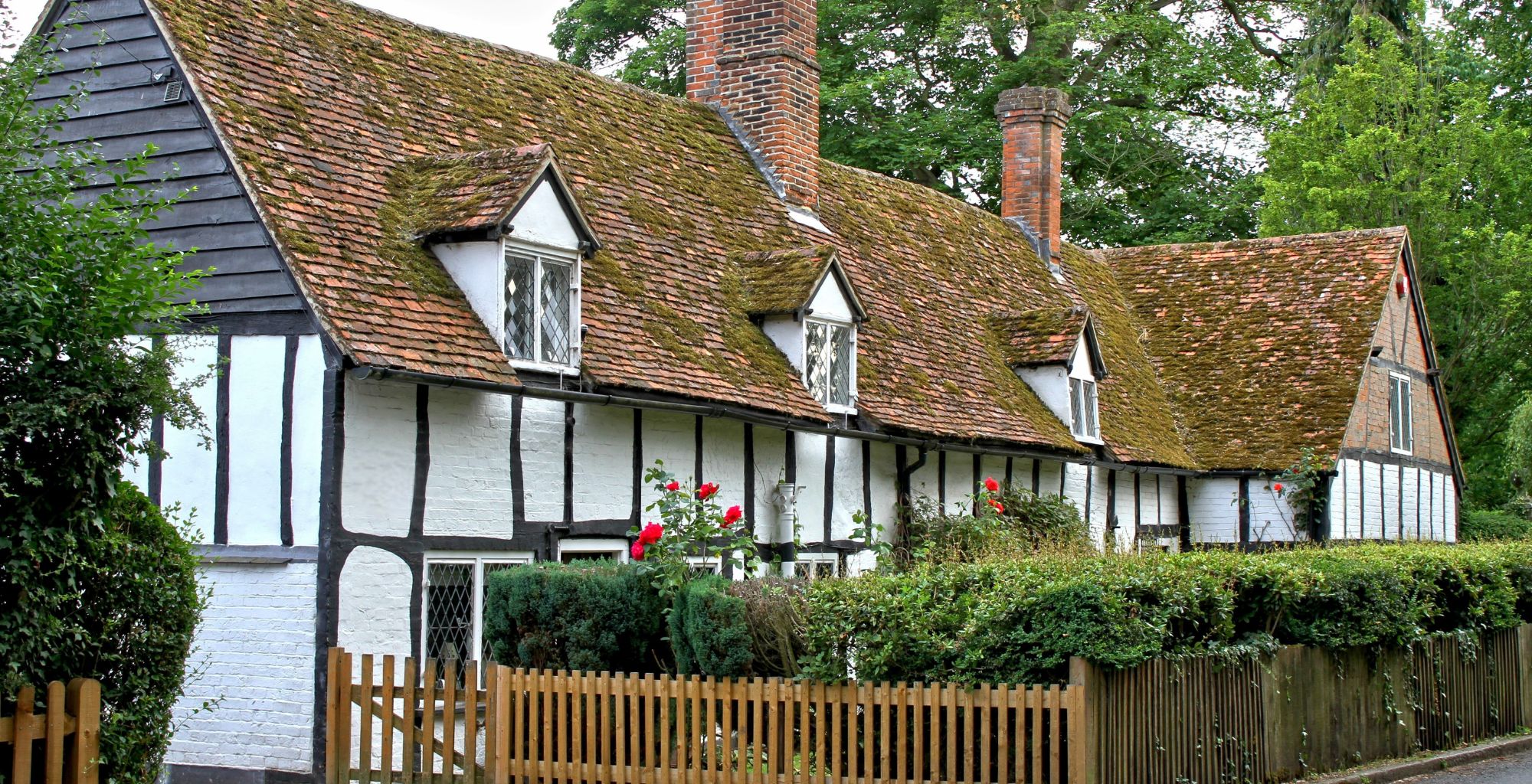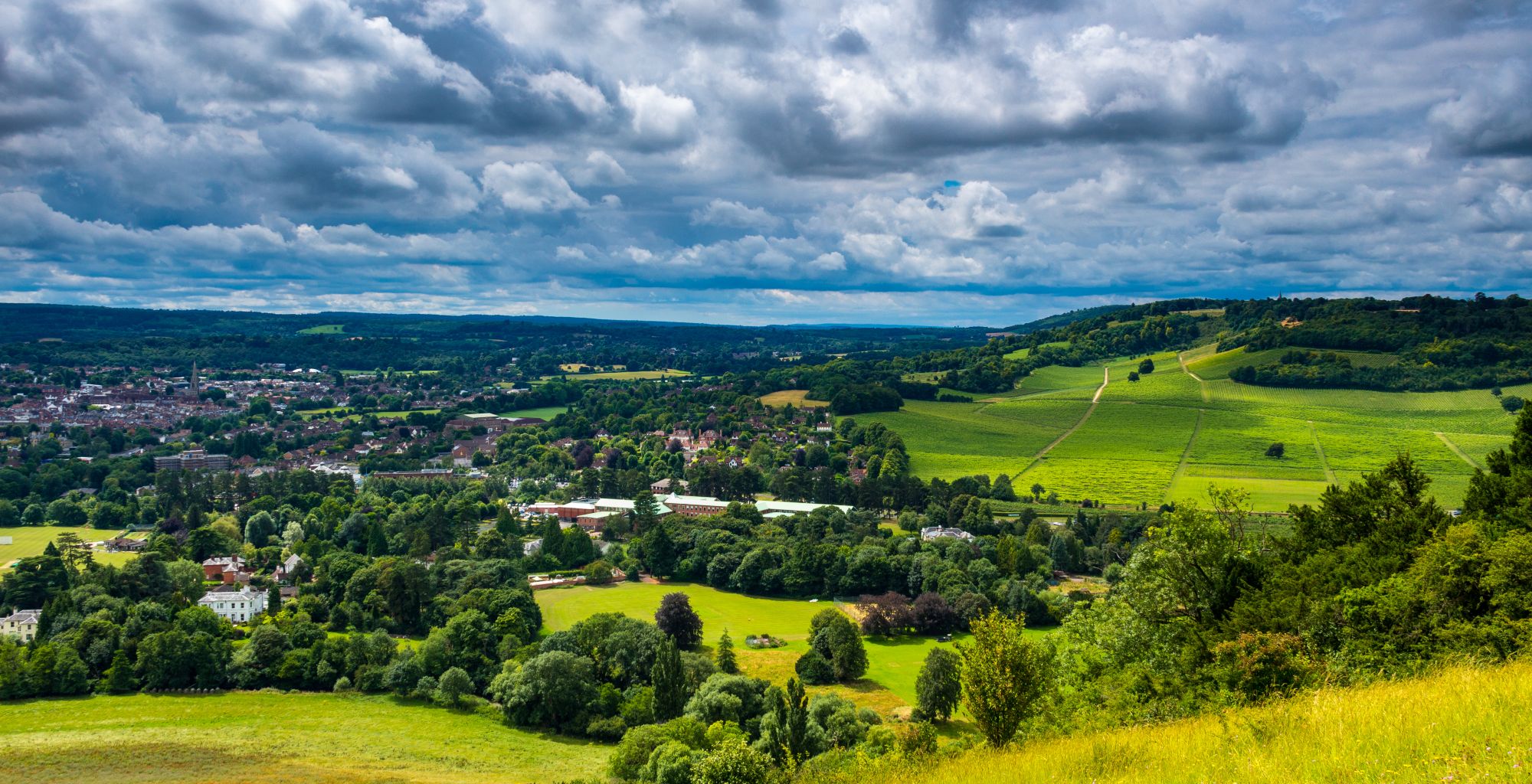Are you looking for the best places to live in Oxfordshire to focus your property search? From bustling market...
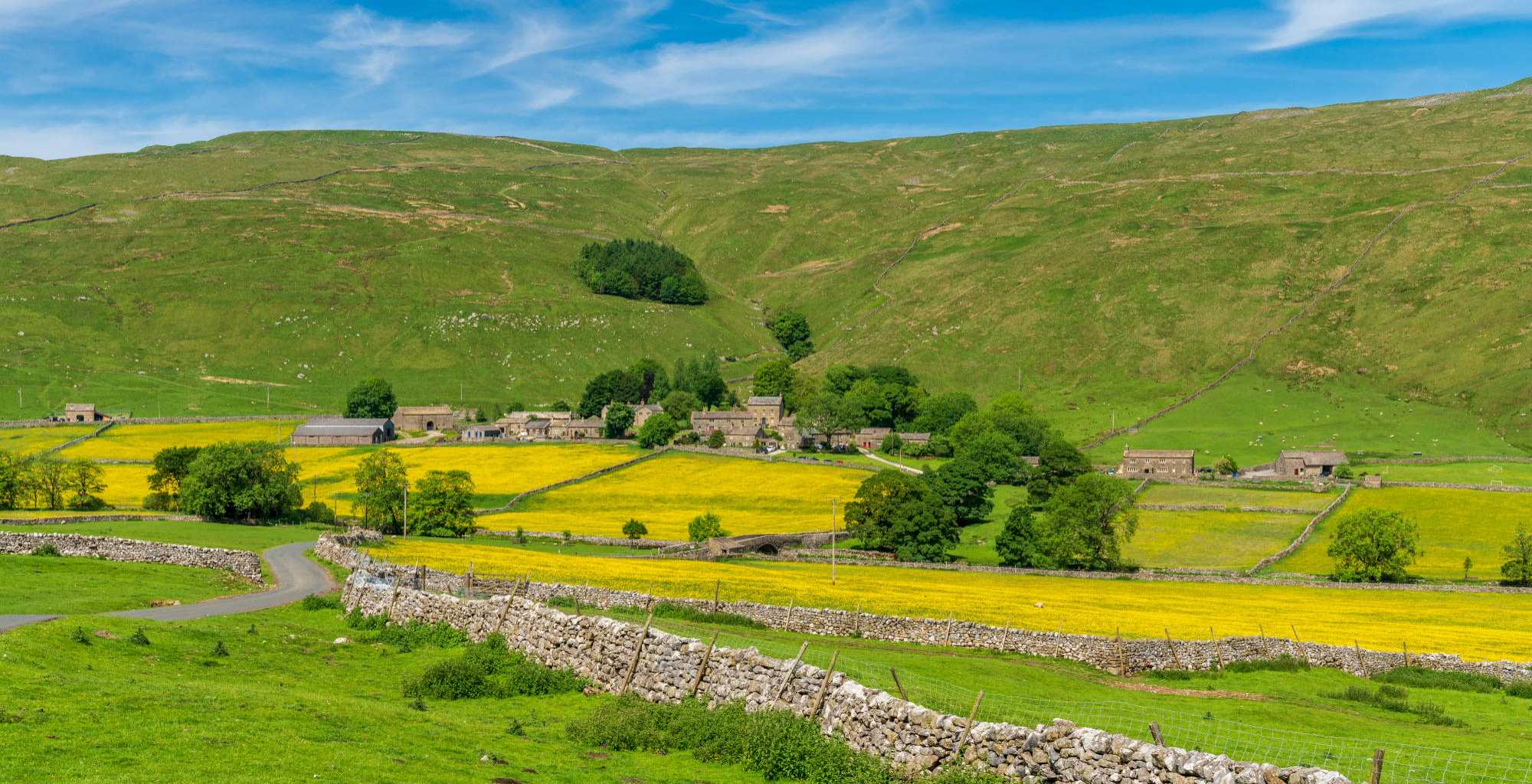
Buying property with land
Those buying property with land often have a number of different motivations driving their purchase and dictating the requirements.
Whether your intentions are to have a house with land that allows you to plant an orchard, or you wish to create a smallholding, have space for your equine interests or are seeking a property with land to guarantee privacy – it can be challenging to find land that is suitable and often even harder to find a property with land that meets all your requirements.
A property with land gives you the opportunity to extend a house, or perhaps add to its facilities, by creating a home office, garaging or even a self-contained annexe.
You might even want land for a self-build plot, creating your own dream home.
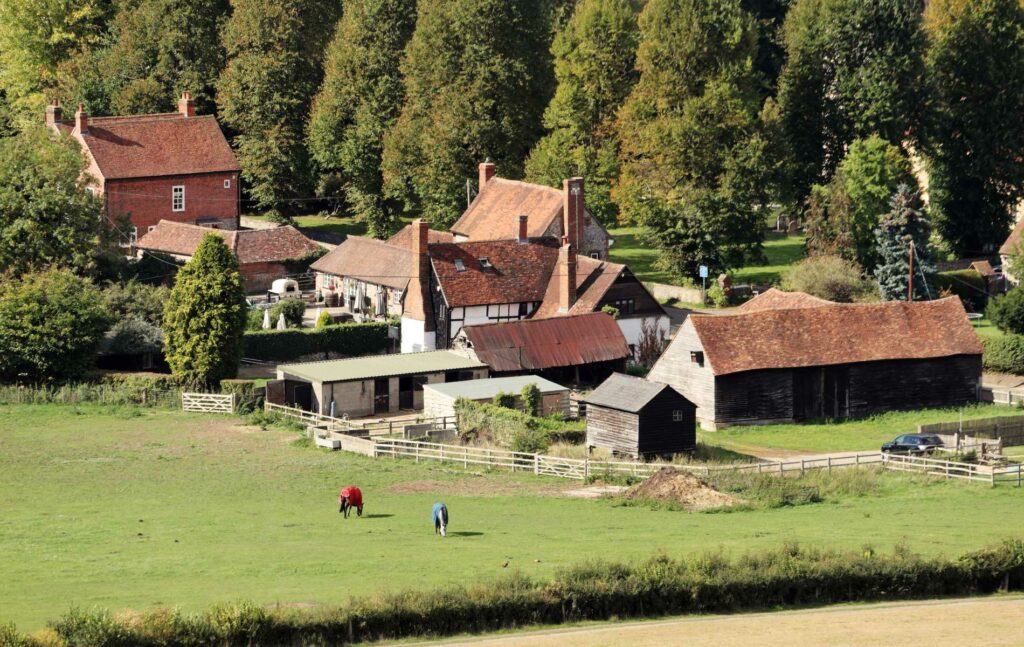
Whilst the property itself is likely to have more concealed features than the surrounding land that doesn’t necessarily mean it’s a more straight forward purchase.
There are often factors detailed only on paper, that are not physically apparent when you are stood on the land in person, leaving buyers potentially unaware of issues that could mean the property and it’s attached land do not work for their purposes.
Finding this information out when you’re already part way in to the process of buying can be frustrating and often costly.
So how can buyer’s avoid such pitfalls when looking for and buying property with land?
What’s the land for?
Buyers need to be clear on the land’s purpose when talking to agents as this will dictate the size, type, the utilities required and what restrictions or permissions are in place surrounding access.
If the land is desired to provide a privacy buffer around a property, and an opportunity arises that on paper is perfect – a home set within several acres for example – it could be the case that a public footpath runs through the grounds and in close proximity to the house, making it entirely unfit for purpose.
Do your homework
If you are looking at buying a rural property with land, it’s helpful to find out who owns the surrounding land.
It might be prudent to speak to a local farmer who will help you understand what the fields are used for and if there is any opportunity for something to be sold to you.
This is because, if there isn’t land accompanying a house, there may be an opportunity to purchase some from a local landowner. Particularly if you’re intending on buying a property with land for the purpose of simply having greater privacy, for example.
Sometimes a vendor will offer land ‘by separate negotiation’ meaning it’s potentially for sale but for a price not included with the property.
Or, sometimes a property with a large amount of land will be divided up into lots enabling the purchase of the amount of land you actually need.
However, be aware that other people or firms will be able to buy neighbouring land if you only purchase one of the land lots.
Find the right agent
There are agents who specialise in selling farms or estates, or those who have dedicated departments that do.
They will be the best people to liaise with as they may know of something coming on the market or for sale off market, meaning it will not be advertised in the usual way on their own website or other property portals.
Old redundant farms come on the market with land attached but these will be usually only listed by those agencies with an agricultural department, not the usual residential estate agencies.
However, equestrian properties, those with land for horses, tend to be listed by a specialist agent that deals in just those kinds of homes.
So be aware and ensure you are looking in the right place—Garrington can assist you with this.
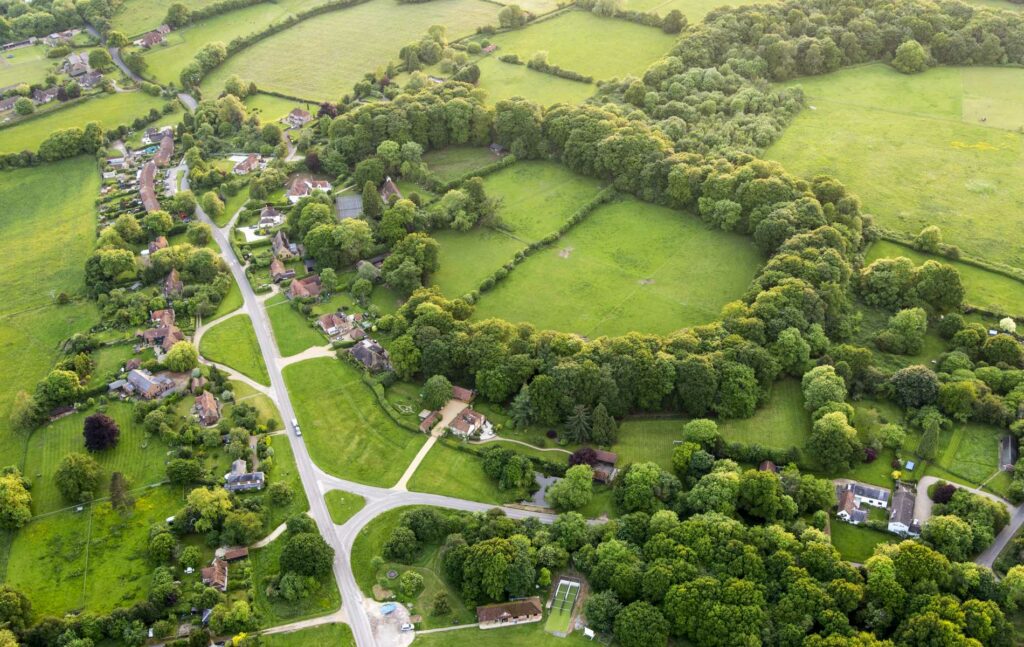
Brownfield or greenfield?
This can be confusing but it’s important to understand the difference when buying property with land.
Brownfield land has previously had a building or development of some sort on it. Greenfield land has never been developed. As a result, they are worth different values.
Greenfield land is normally valued per acre based on its established use. Well-tended arable land might be worth around £12,000 per acre.
Equestrian land with water and power connected can be worth more; potentially around £15,000 to £20,000 per acre.
Unutilised land which isn’t farmed could be less than £10,000 per acre and woodland £4,000 to £6,000 per acre.
However, smaller units of land tend to command a slightly higher premium since more people are looking for this, with many house buyers often needing just an acre for various uses.
Brownfield land tends to be valued slightly differently as it already has an established use which can make it more valuable.
Land values are also determined by things such as infrastructure and transport links, so once you’ve identified an area, its current facilities will affect how much it’s worth.
Also, if it or neighbouring land is earmarked for any future developments will affect its price; for example, if a road close by is being improved, a new road is being created, or new homes, a school or doctor’s surgery is being built.
Planning permission
If you are considering buying property with land and thinking of building anything at all on the land, it’s prudent to consider whether you would get planning permission to do so and perhaps even talk to the local planning office.
In some cases a president might have been set on neighbouring land or planning permission granted but not acted upon in previous years.
It is possible to buy plots with planning permission already granted, particularly for a new build house.
This usually is only ‘outline’ planning permission—meaning you will need to clear the final details with the planning authorities.
Sometimes a property can be for sale with pre-planning application approval, meaning the authorities have indicated they would be in favour of particular work or development being granted.
There is no cast-iron guarantee that this is the case, so you need to do as much research as possible to avoid disappointment further down the line.
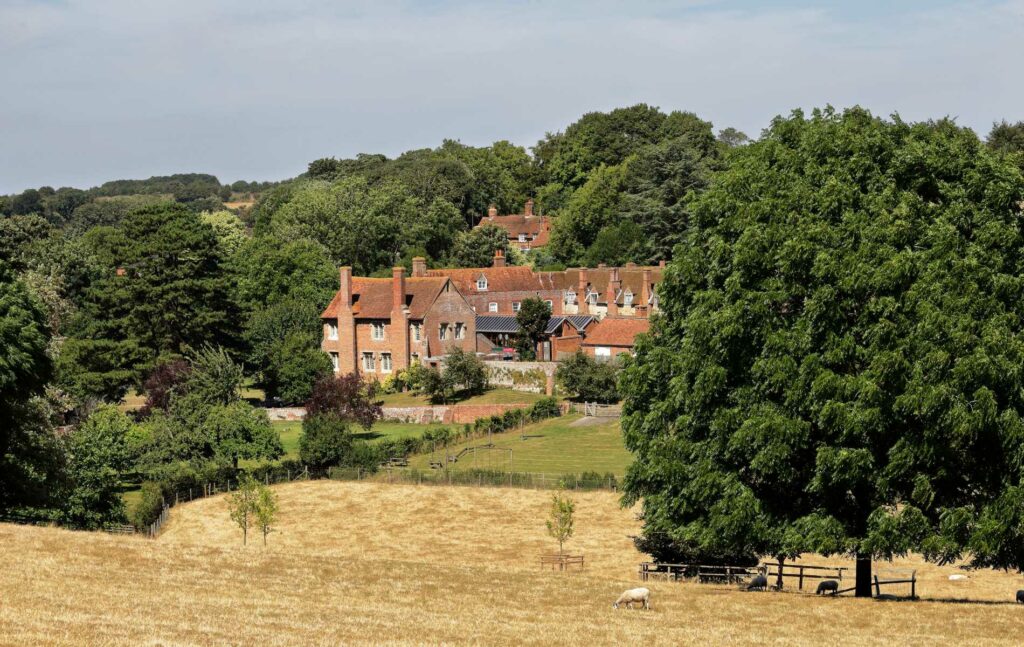
Be wary of the pitfalls
It’s important you instruct a solicitor who has experience in dealing with land purchases.
Some land parcels come with restrictive covenants—conditions written into their sales contract—meaning you can’t do certain things.
Often this is done to protect the land value or minimise long term damage to an area.
Other such restrictions can involve ‘ransom strips’, which is where a landowner retains a strip of land making it tricky for you to do what you want with it without paying additional money.
There are all sorts of other potential problems too when buying land.
You need to check whether there are rights of way such as a public footpath that crosses it. This may affect its use going forward.
You also need to know the exact boundaries to a plot of land and what you actually own when you buy it.
This is because land often gets carved up over time, and hedgerows and trees can get removed or planted, meaning some old maps or land plans aren’t always accurate.
You need to be sure where your plot starts and ends. Again, using the right agent and solicitor will ensure this kind of detailed work is done prior to purchase.
Other potential problems, depending on what you plan to use land for, is risk of flooding, what sort of drainage it has and whether there are any overhead power lines. All these may affect your potential use and are important considerations when buying property with land.
You need to understand how easy it would be to get electricity, a water supply and sewage disposal if you are looking to build on it. Also, consider that the view from your land may change.
A piece of land with fabulous vistas may not stay that way depending what the surrounding countryside is used for.
Farmers are choosing to diversify their uses of land and some are even selling up because of Brexit.
So if a field of oil-seed rape with its magnificent yellow flowers is one of the attractions, it’s worth finding out if the farmer has any future plans.
Also, remember farmers grow crops on rotation so the use of a field will change each year.
Understand the work of a farmer on land close to your purchase; in the summer months they will be busy with harvesting, so from July to September there will be lots of activity, noise and dust.
Get the land surveyed
The professionals you work with will have a large impact on your ability to not only find a suitable property with land but also ensure you buy something that will work for you.
Find a good land surveyor and a solicitor who has experience in dealing with land purchases, ideally, both will know the area in which you’re buying meaning they will be aware of any common covenants or issues.
It’s incredibly important to make sure you get the land properly inspected by an experienced surveyor who will pick up any of the above problems, just as you would when purchasing a house.
This will throw up any issues; and of course, may mean you can negotiate on price.
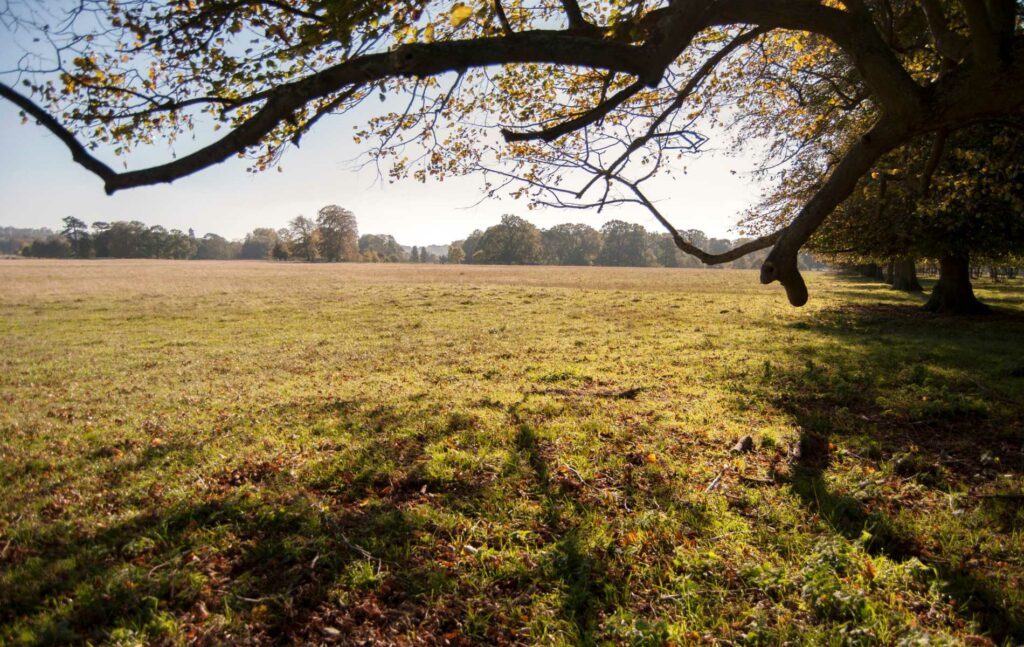
Quality not quantity
When buying property with land, it’s helpful to understand exactly what type you are buying.
Is it light and sandy or does it have a lot of clay in it?
If you are buying a smallholding, and want to grow crops or vegetables, you need the correct land to do so.
If you are thinking of having some animals on land, the land texture is also important, particularly if you need to graze them.
Also, if you are thinking of having animals on land, be aware of plants growing which may be poisonous. Some are particularly bad for horses and others for cattle.
Common ones include ragwort, foxglove and deadly nightshade.
Also understand environmental considerations when buying land; consider how your use of it may affect its appreciation for others.
A stream running may be vital for wildlife or certain wildflowers may attract bees and insects, so understand how your use of fields may have an impact.
Buying property with land comes with a plethora of considerations and it can be sensible to engage a local knowledgeable professional.
Buying property with land
Garrington are often approached for assistance in finding and buying property with land largely due to the many factors involved with buying land that are quite different to simply buying a house with a garden.
The differences in language used, potential restrictions, usage and rights of way often leave buyers seeking assurance and the ability to make a well informed decision with professional guidance.
If you’re considering buying property with land and believe you could benefit from expert guidance, please do get in touch to discuss your requirements with one of our property finders.
